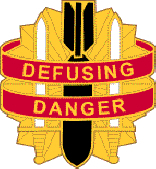The answers to sexual assault and suicide may be the same: Dynamic leadership that makes soldiers feel like family

By Capt. Nick Nethery
Best Defense guest
columnist
I'm wondering if the massive
increase in sexual assaults over the last few years is
similar to the massive increase in suicides in the same period. And I'm
wondering if the response to this problem might be similarly ineffective.
Suicides go up
for a number of reasons, but rather than address those reasons, we stick a
band-aid on a sucking chest wound by reducing it to a powerpoint slideshow and
a video introduced by a sergeant major or general. In light of hard data
showing increased suicides at the exact same time as requirements on commanders
to administer these prevention classes have surged, is it possible that the
classes are exacerbating the problem?
I don't mean to
imply that the classes themselves cause suicides, but are leaders falling into
the trap of thinking that the problem is solved because the brief has been
given? That if you force your soldiers to sit through the brief, then you've
"done your part" and no further action is required?
Might it be the
same with sexual harassment and assault? Are leaders "checking the
block" by administering these classes, choosing to believe their command
is safe afterward, rather than addressing the underlying issues behind a rise
in harassment and assault? I am no psychologist or sex abuse counselor, but I
am a leader who tried to care about my soldiers when I had the fortune to lead
them. During my time in command, I was skeptical of the Army's solution to this
problem. I took a more dynamic approach. I knew all my soldiers, their
families, their birthdays, their kids' names, what their goals and aspirations
were, what kind of music and beer and cars they liked. I had male and female
soldiers, of all ages and backgrounds. Not to be too sappy, but we were family. And you know
what? We never had any of these problems.
Again, I just
see my little lane. I'm no general. But I realized the limitations of the
Army's answer to suicide prevention and sexual assault, and took a more active
approach, one where I knew my soldiers down to the tiniest detail. I trusted
them -- and showed them I did -- and they trusted me. I don't flatter myself
that all my soldiers liked me. I didn't have perfect commands, and we had some
other minor discipline issues, but in four years leading soldiers I never had a
single incident of suicide, suicidal ideation, or sexual harassment/assault. It
worked for me. My own bosses saw that my method worked, and were supportive as
long as I was meeting the Army's required training guidelines.
Capt. Nick
Nethery commanded the
737th and 722d EOD Companies, both at Ft. Bragg, and
took 722d to Iraq from May 2011 to June 2012. This article represents his own
views and are not necessarily those of the U.S. Army or the Department of
Defense.
Thomas E. Ricks's Blog
- Thomas E. Ricks's profile
- 436 followers



